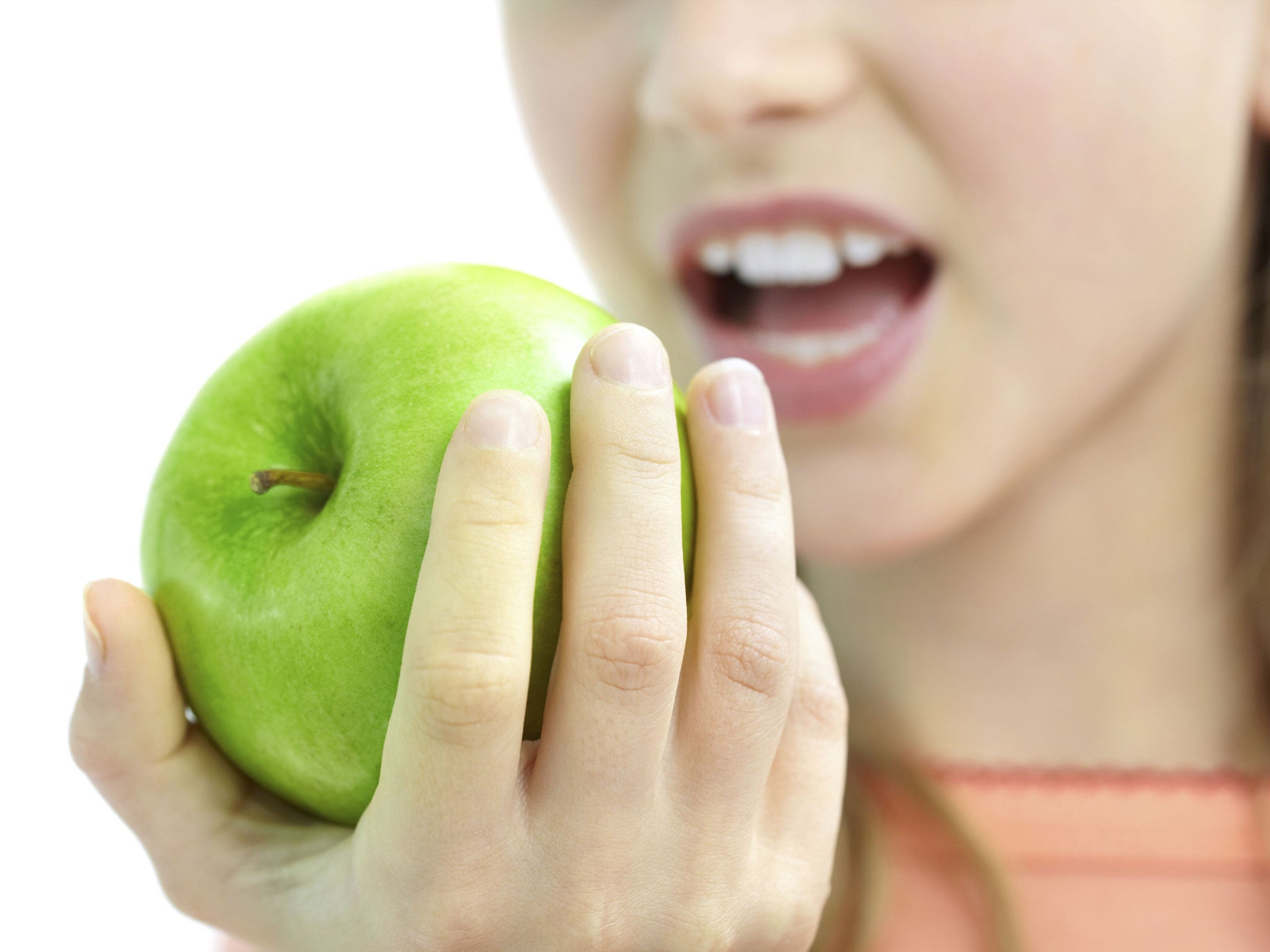Competition could make children eat more fruit and vegetables, researchers find
Introducing incentives could be key to helping children make healthy choices

Your support helps us to tell the story
From reproductive rights to climate change to Big Tech, The Independent is on the ground when the story is developing. Whether it's investigating the financials of Elon Musk's pro-Trump PAC or producing our latest documentary, 'The A Word', which shines a light on the American women fighting for reproductive rights, we know how important it is to parse out the facts from the messaging.
At such a critical moment in US history, we need reporters on the ground. Your donation allows us to keep sending journalists to speak to both sides of the story.
The Independent is trusted by Americans across the entire political spectrum. And unlike many other quality news outlets, we choose not to lock Americans out of our reporting and analysis with paywalls. We believe quality journalism should be available to everyone, paid for by those who can afford it.
Your support makes all the difference.Parents may teach their children it’s the taking part that counts – but when it comes to healthy eating, it might be better to be in it to win it.
Introducing a competitive edge in the school canteen could increase the number of children eating fruit and vegetables by up to a third, according to a new study.
Researchers from the University of Bath’s Institute for Policy Research (IPR), as well as academics from the Universities of Edinburgh and Essex, found that introducing incentives at meal times is key to encouraging children to eat their greens.
Dr Jonathan James, from the University of Bath, said: "Through our research we found that introducing an element of competition at lunchtime could have larger effects on children’s eating habits than using an incentive scheme that was based only on their own choices. By using a different approach, we found that the proportion of children trying fruit and vegetables could be increased by up to a third."
The researchers carried out a randomised controlled trial in 31 schools, incorporating over 600 pupils in years one and two. They introduced two incentive schemes, one individual and one competitive, in which pupils were given a sticker if they chose a portion of fruit or vegetables at lunch time, or brought it in their packed lunch.
Pupils in the individual scheme were given an extra reward, such as a highlighter pen, at the end of each week that they collected four or more stickers. Pupils in the competition scheme were randomly assigned into groups of four and the pupil with the most stickers in each group won the additional prize.
Boys were found to respond to both schemes while girls mainly responded to the competitive one.
The research was carried out over a period of six weeks, with the schemes introduced in two-thirds of the schools involved. The remaining schools carried on as usual, allowing room for comparison.
Professor Michèle Belot, of the University of Edinburgh, said: "Using incentives, particularly with children, is often controversial. Yet many parents use incentives to encourage positive behaviour from their children. Our research shows that certain incentives do work, and in particular work for groups of children that typically respond little or not at all to other health-promoting interventions, such as boys and children from poorer backgrounds."
Join our commenting forum
Join thought-provoking conversations, follow other Independent readers and see their replies
Comments